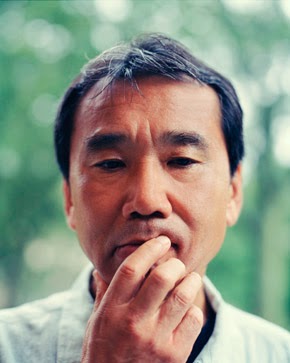Pokemon turns 15
My comments to author and critic Charles Solomon on Pokemon's 15th birthday and the series' critical role in the spread of anime and Japanese pop culture in the West--in the Los Angeles Times:
‘Pokémon’ at 15: Success is still in the cards, films and TV shows
After 15 years, 700 TV episodes and 14 feature films, Ash Ketchum and millions of kids are still trying to catch ‘em all.
In April 1997, the animated version of “Pokémon” premiered on Japanese television. Based on the hit Nintendo Game Boy title introduced two years earlier, the series follows the travels and travails of Ketchum (Satoshi in the original) as he tries to become a Pokémon Master by building a team that can beat other trainers in stylized battles. Traveling with Ash are perennially love-sick Brock, feisty Misty and Pikachu, the “electric mouse” Pokémon.
The series scored a huge hit in Japan, and by 1999 the game and show had conquered America. Pokémon paraphernalia were everywhere. The original motto, “Pokémon Getto Daze!” (Let’s Get Pokémon!) became “Gotta Catch ‘em All!” The first “Pokémon” feature film grossed more than $85 million, and horror stories appeared on the news about kids stealing one another’s “Pokémon” trading cards.
Once the craze peaked, the mainstream media and a large portion of the population assumed that “Pokémon” faded away. But gamers, anime fans and parents of elementary school boys know it’s still very present — as its staggering sales attest.
“People remember the late ’90s/early 2000s ‘Pokémon’ because it was so big,” says J.C. Smith, marketing director for the Pokémon Co. International. “Many people believe ‘Pokémon’ went somewhere after that, when it’s been steady for 15 years. Over that time, 230 million ‘Pokémon’ video games have been sold worldwide: The franchise is second only to ‘Mario,’ which began 10 years earlier. The most recent game, Pokémon Black Version/White Version, has almost sold 14 million units so far. Over the years, we’ve also sold 19 billion Pokémon cards.”
That’s more than two cards for every person on the planet.
The animated series is licensed in 160 countries in 30 languages. More than 700 episodes have been broadcast over the last 15 years — by comparison, in February, “The Simpsons” hit its 500th episode over 23 seasons.
Although “Pokémon” has been accused of fostering gambling, un-Islamic conduct and Darwinism, the series and games stress friendship and good sportsmanship. When a player wins, it’s not a glorious victory but a testament to his exceptional bond with his Pokémon. In the series, Ash never allows anyone to mistreat a Pokémon, and he learns self-sacrifice when he permits his Butterfree to find a mate and depart for their nesting grounds.
“Pokémon” also awakened a generation of American children to the wonders of Japanese animation. Roland Kelts, the author of “Japanamerica: How Japanese Pop Culture Has Invaded the U.S.,” comments, ” ‘Pokémon’ was a breakthrough series for anime and remains one of its touchstones. It also introduced audiences, usually kids, to what I call anime style: the line-based, edgy-looking, two-dimensional visuals, and a golden triangle of merchandising strategies comprising games, collectibles and the stories themselves. Shows like ‘Pokémon’ and ‘Dragon Ball Z’ serve as gateway drugs to anime, manga and sometimes Japanese culture itself. They’re often the childhood catalysts for college students who study Japanese in the U.S., or sign up for short-term home-stays or English-teaching gigs.”
In August, players from 25 countries will compete in the Pokémon championships in Kona, Hawaii. The 14th “Pokémon” feature recently aired on Cartoon Network and will appear on DVD this month. This fall, Pokémon Black and White Version 2 games will debut—the first sequels in the history of the franchise. The online Pokémon Trading Card Game — for people who want to learn and play whenever they have free time — is in open beta at www.pokemontcg.com.
When asked about the enduring appeal of “Pokémon,” Smith replies, “One of the reasons is the richness of its world. There are more than 640 Pokémon now, so everyone has a favorite or a team of favorites. The principle tenet of ‘Pokémon’ is collect, trade and battle: Now you have 640 options. You can collect them, trade them with your friends, or train them for battle in the trading card or video games. People want to complete their collections or find that one new Pokémon that helps their battle strategy.”
– Charles Solomon

